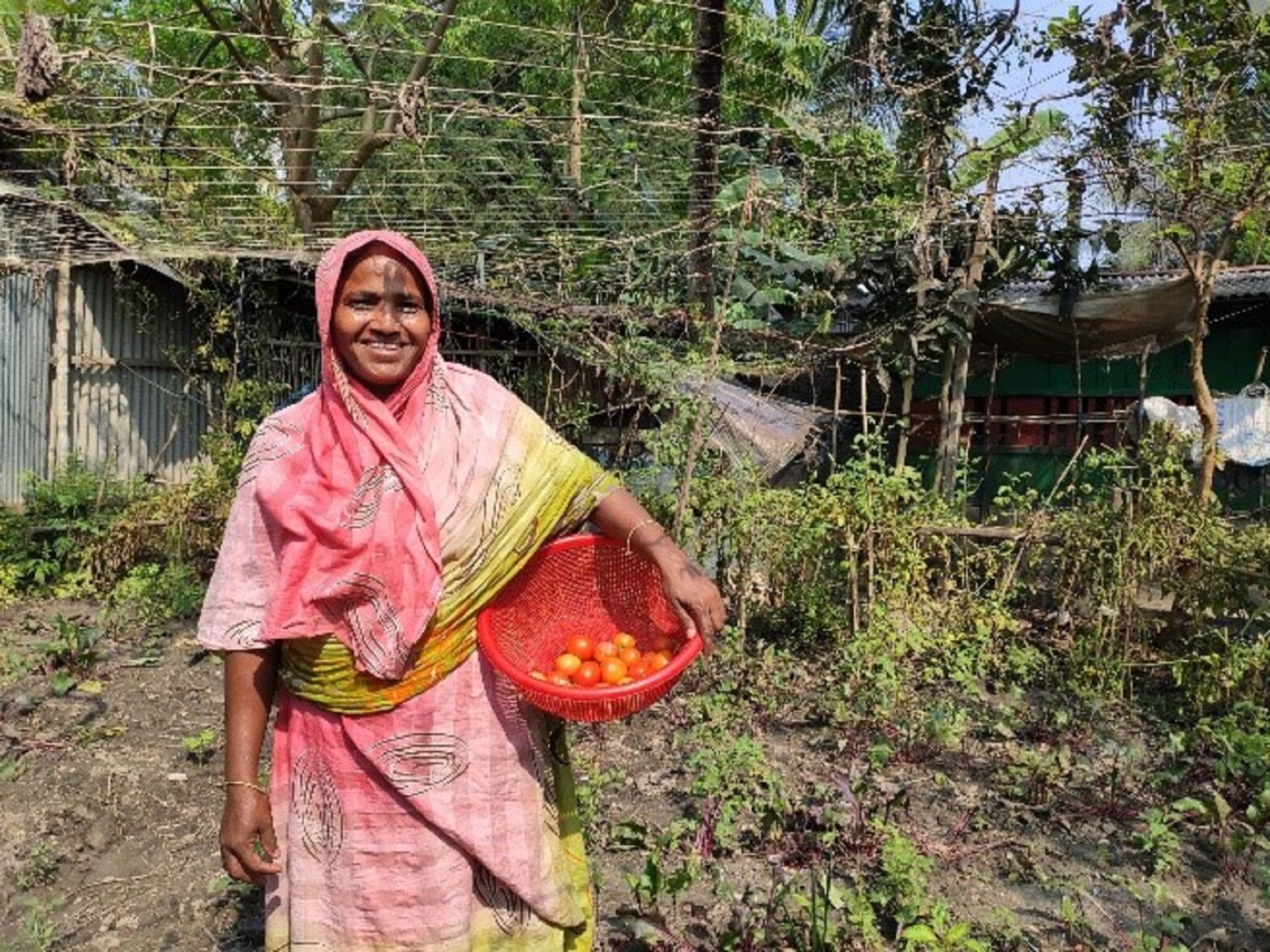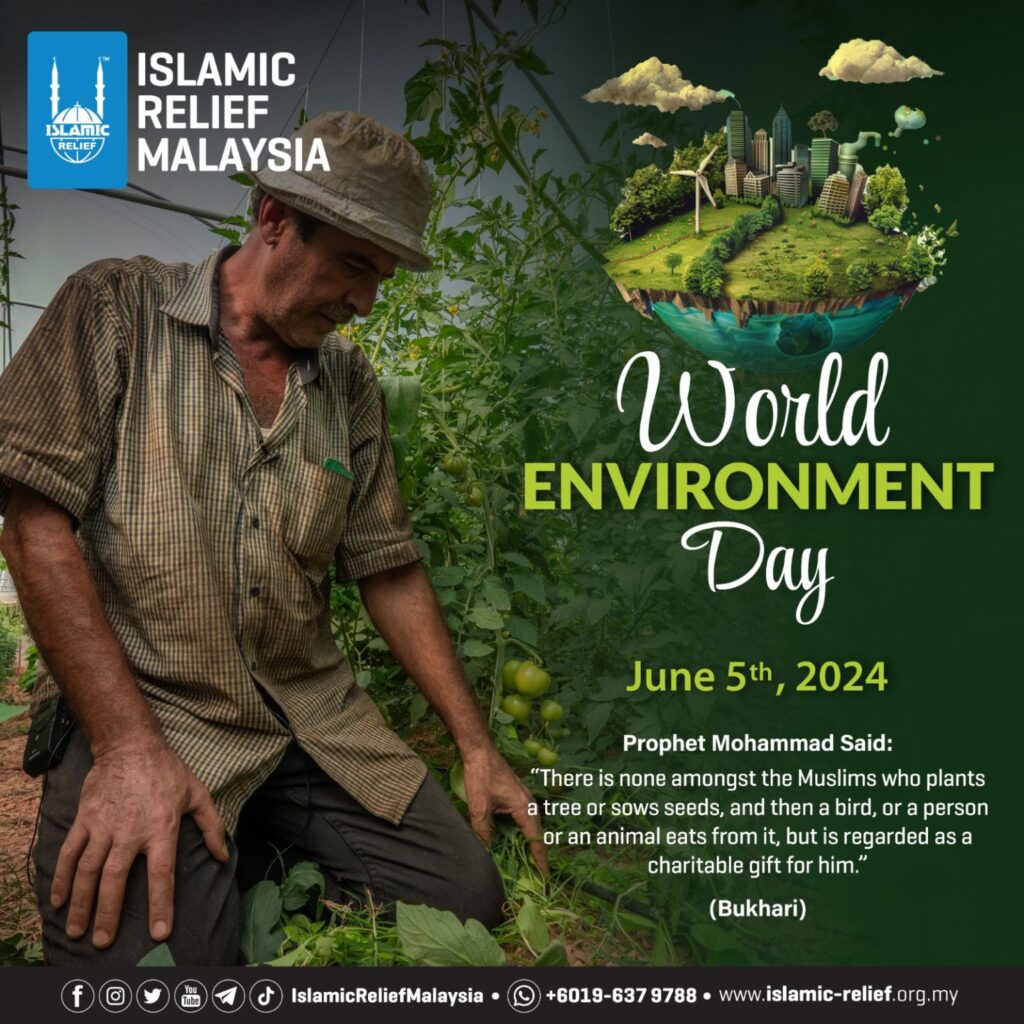
Bangladesh is one of the world’s most climate-vulnerable countries. Those living there are increasingly faced with climate hazards such as natural disasters, and highly specific problems that damage the agriculture sector – including salinity intrusion.
Salinity intrusion affects coastal regions, significantly reducing agricultural productivity. Over the past 35 years, this intrusion has surged by 26%.
By 2050, climate change is forecasted to worsen river and groundwater salinity, exacerbating water scarcity in Bangladesh’s southwest coastal areas and affecting the livelihoods of approximately 2.9 million impoverished individuals.
Events like Cyclone Aila damaged soil and groundwater salinity, posing immense challenges for the agriculture sector. Other factors such as disasters, summer water shortages, saline mud, and delayed rainfall further hinder agricultural development.
To address these issues, Islamic Relief has launched a number of projects to enhance community resilience and economic sustainability across 3 districts – Khulna, Bagerhat, and Satkhira – focusing on vulnerable coastal areas.
Enhancing resilience
One such initiative launched is our ‘Empowering Marginalised Communities of Bangladesh towards achieving Agenda 2030’, the main goal of which is to boost institutional and community resilience in vulnerable coastal areas, helping them to better withstand the impacts of climate change.
The project aims to empower marginalised families to protect their rights and bolster their resilience to climate change impacts. Through various interventions, including promoting locally-led adaptation techniques, trialling climate-resilient crops, and encouraging modern agricultural practices, the project aims to enhance agricultural productivity and improve livelihoods as well.
Additionally, initiatives such as promoting indigenous livestock breeds and implementing water-saving techniques like “mulching” are underway to mitigate water scarcity and increase production rates.
Through the project, communities are participating in training sessions on kitchen gardening, receiving assistance with necessary inputs (such as receiving donations seeds, saplings, and vermicompost organic fertiliser), and attending demonstrations aimed at boosting agricultural output – all while adjusting to climate change impacts.
As a result, community resilience is steadily improving.
Sowing seeds
Islamic Relief identified 2,500 individuals to grow their own home gardens. To help these gardens flourish, Islamic Relief organised numerous training sessions and provided seeds and organic fertiliser throughout the project duration.
Arzina, a project participant from Ishwaripur Union in the Dumuria sub-district of Khulna, was supported to turn her heavily saline land into a productive homestead garden.
“I never imagined our salty land could transform into lush greenery. Now, we are not solely reliant on my husband’s income.” Arzina says.
After receiving training, Arzina applied the techniques she had learned – including using organic fertiliser instead of chemical fertiliser and selecting climate-resilient varieties, such as string beans, tomatoes, radish, spinach, coconut, guava, amongst others – to her gardening to try growing vegetables. Despite the salinity of her land, Arzina succeeded, growing a harvest that has provided additional income towards her children’s education.
“The training and techniques I have acquired from Islamic Relief have expanded my knowledge and yielded positive results. Witnessing such verdant growth on our once barren land is beyond our expectations.”
This project has benefitted close to 38,000 individuals so far, and is one of Islamic Relief’s most successful projects in Bangladesh as part of our continued efforts to combat climatic change EMCB Agenda 2030 project.

Initiatives like these demonstrate the vital role of community-led efforts in building resilience and fostering sustainable development in climate-vulnerable regions. More can be done however, and this World Environment Day we are highlighting the urgent need for climate action to help people like Arzina, and the communities they belong to. Donate now.



